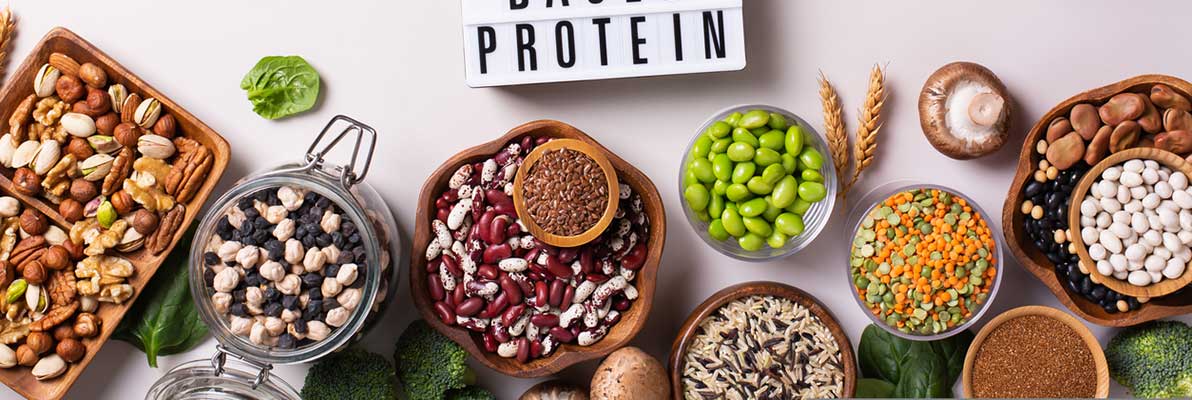

Protein powders are an essential part of any fitness journey, catering to a variety of dietary needs and preferences. As we begin, let's address a key question: how is protein powder made?
These powders help us meet our daily protein needs effortlessly, supporting muscle growth and recovery. Easily incorporated into our busy lifestyles, they provide a quick and convenient source of nutrition.
While whey has been a go-to choice for many, plant-based options have become increasingly popular, offering a range of benefits. In this article, we'll delve into the captivating world of protein powder production, focusing on whey, pea, hemp, brown rice, and pumpkin seed proteins. Are you ready? Let's dive in!
How is pea protein powder made? The powerhouse of plants
Pea protein starts with yellow split peas, an excellent plant-based protein source. After cleaning and soaking, the peas are ground into a paste.
During wet fractionation, the paste is separated into protein, starch, and fiber. The isolated protein is then dried and milled into pea protein powder.
Hypoallergenic, easily digestible, and perfect for plant-based diets, pea protein offers vegans and vegetarians a potent protein source. It's also a great source of branched-chain amino acids (BCAAs), which foster muscle growth and enhance exercise performance.
How is brown rice protein powder made? Simple, yet effective
Brown rice protein powder begins with whole brown rice grains, offering a more natural and unrefined protein source than white rice. The grains are ground and subjected to enzymatic hydrolysis to isolate the protein content from the carbohydrate components.
Once dried and milled, you get a hypoallergenic, easily digestible protein powder. Ideal for those with food sensitivities or following a plant-based diet, it's a versatile protein source that can be used in various recipes.
Brown rice protein is also effective in muscle recovery, making it a great post-workout option.
How is pumpkin seed protein powder made? The jack of all trades
Pumpkin seed protein powder comes from nutrient-dense pumpkin seeds. After cleaning, hulling, and cold-pressing to extract the oil, the remaining seed cake is transformed into a fine powder.
Pumpkin seed protein contains all nine essential amino acids although it is relatively low in methionine and tryptophan, making it ‘almost complete’ protein option. It's also rich in fibre, minerals, and healthy fats, which support digestion, immune function, and heart health.
Pumpkin seed protein is an excellent source of magnesium, zinc, and iron, contributing to improved energy levels and overall wellness. It's a wholesome choice that benefits the entire body.
How is hemp protein powder made? The super seed solution
Hemp protein powder is derived from hemp seeds. After cold-pressing to extract the oil, the remaining seed cake is milled into a fine powder.
Hemp protein contains all nine essential amino acids, making it a complete protein source. It's also a fantastic source of omega-3 and omega-6 fatty acids, which promote heart health and reduce inflammation.
Packed with antioxidants and minerals, hemp protein provides an all-around nutritional boost. Nutritious and plant-based, it's a winning combo that supports overall health and well-being.
How is whey protein powder made? From milk to muscles
Whey protein comes from the cheese-making process. When milk is separated into curds and whey, the whey contains the valuable protein.
The liquid whey is pasteurised and filtered to remove lactose and fat, ensuring a purer protein source. Once evaporated, you're left with a protein-packed whey powder that's perfect for fuelling your workouts and supporting muscle recovery.
Whey protein is a great option post-workout, as it's easily absorbed by the body an ideal option for post-workout shakes to aid in muscle repair and growth.
Choosing the right protein powder
With a variety of protein powders available, it's essential to choose the right one based on your dietary preferences, fitness goals, and any allergies or sensitivities you may have.
Factors to consider include the protein source, amino acid profile, taste, and mix-ability.
Additionally, it's important to look for products with minimal added sugars and artificial ingredients to ensure you're getting the best possible nutrition.
VORA good shape protein contains organic and all natural ingredients, with no added sugar, artificial colourings or artificial flavours. And the best part it, it tastes delicious!
Sustainability and ethical considerations
As consumers become more conscious of their choices, sustainable and ethical practices have taken center stage. Plant-based protein powders, in particular, tend to have a lower environmental impact compared to animal-derived options like whey.
Producing them require less land, water, and other resources, making them a more sustainable choice. By choosing plant-based protein powders, you're not only benefiting your health but also contributing to a more environmentally friendly future.
Our Good Shape Protein is 100% plant-based, containing a mouth-watering blend of pea, brown rice, and pumpkin seed protein powders. They're sustainable, nutrient-dense, and gentle on your stomach, making them ideal for various dietary needs and preferences.
Final thoughts
Protein powders are the ultimate diet enhancer, perfect for supporting your fitness journey and overall health. As a plant-based company, we're proud to offer plant-based protein options that deliver both taste and nutrition.
Whether you're an athlete looking to boost your performance, someone trying to lose weight, or simply seeking a convenient and delicious source of protein to support your active lifestyle, protein powders have a lot to offer. By understanding the different protein sources and their unique benefits, you can choose the perfect protein powder to help you achieve your health and fitness goals.
← Older post Newer post →

